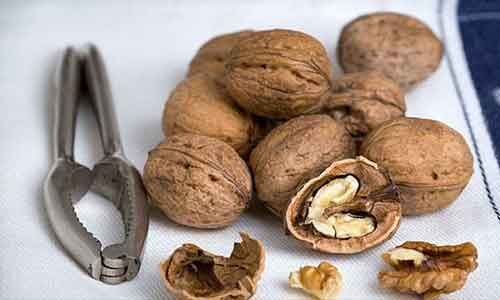- Home
- Medical news & Guidelines
- Anesthesiology
- Cardiology and CTVS
- Critical Care
- Dentistry
- Dermatology
- Diabetes and Endocrinology
- ENT
- Gastroenterology
- Medicine
- Nephrology
- Neurology
- Obstretics-Gynaecology
- Oncology
- Ophthalmology
- Orthopaedics
- Pediatrics-Neonatology
- Psychiatry
- Pulmonology
- Radiology
- Surgery
- Urology
- Laboratory Medicine
- Diet
- Nursing
- Paramedical
- Physiotherapy
- Health news
- Fact Check
- Bone Health Fact Check
- Brain Health Fact Check
- Cancer Related Fact Check
- Child Care Fact Check
- Dental and oral health fact check
- Diabetes and metabolic health fact check
- Diet and Nutrition Fact Check
- Eye and ENT Care Fact Check
- Fitness fact check
- Gut health fact check
- Heart health fact check
- Kidney health fact check
- Medical education fact check
- Men's health fact check
- Respiratory fact check
- Skin and hair care fact check
- Vaccine and Immunization fact check
- Women's health fact check
- AYUSH
- State News
- Andaman and Nicobar Islands
- Andhra Pradesh
- Arunachal Pradesh
- Assam
- Bihar
- Chandigarh
- Chattisgarh
- Dadra and Nagar Haveli
- Daman and Diu
- Delhi
- Goa
- Gujarat
- Haryana
- Himachal Pradesh
- Jammu & Kashmir
- Jharkhand
- Karnataka
- Kerala
- Ladakh
- Lakshadweep
- Madhya Pradesh
- Maharashtra
- Manipur
- Meghalaya
- Mizoram
- Nagaland
- Odisha
- Puducherry
- Punjab
- Rajasthan
- Sikkim
- Tamil Nadu
- Telangana
- Tripura
- Uttar Pradesh
- Uttrakhand
- West Bengal
- Medical Education
- Industry
Regular walnut consumption may reduce risk of H. pylori-associated gastric cancer

FOLSOM, Calif. - A new animal study, published in the Journal of Clinical Biochemistry and Nutrition, suggests regular walnut consumption may be a promising intervention for reducing negative outcomes associated with Helicobacter pylori (H. pylori) infection, a widespread bacterial infection that affects more than half of the world's population.
Using mice models, researchers from the CHA Cancer Prevention Research Center in Korea found preliminary evidence that eating a diet rich in walnuts may help protect against negative outcomes associated with H. pylori infection. Specifically, the research found that walnut extracts, formed from whole walnuts, may help create protective proteins and anti-inflammatory actions in the gut that may safeguard against H. pylori infection and resulting cancer in mice. The study was supported by the California Walnut Commission.
Prevalence of H. pylori is most common in developing countries as it is generally related to socioeconomic status and hygienic conditions and is thought to be spread through person to person contact or even through food and water. H. pylori infection is a major cause of ulcers in the stomach and small intestine as well as stomach cancer and peptic ulcer disease. While treatments are currently available, there are concerns about the bacteria's growing resistance to antibiotics.
Due to increasing challenges associated with antibiotic resistance, researchers have been investigating dietary and other non-bacterial approaches to improve impact from H. pylori infection, such as in this new study.
This is not the first time walnuts have been linked to a lower risk of gastrointestinal cancer development in mice. Two other animal studies published in Cancer Prevention Research and Nutrients found that walnuts in the diet may suppress colon tumor development by modifying gut bacteria as well as inhibit the progression of colorectal cancer by suppressing angiogenesis - the development of new blood vessels which facilitates the growth of cancer cells.
Animal studies are valuable for providing background information and can be used as a basis for future research in humans. Based on the existing body of evidence, including this study on walnuts, dietary approaches to reduce symptoms of H. pylori infection, such as inflammation, seem worthwhile to pursue in a well-designed clinical trial to confirm the findings
https://www.jstage.jst.go.jp/article/jcbn/68/1/68_20-103/_article
Hina Zahid Joined Medical Dialogue in 2017 with a passion to work as a Reporter. She coordinates with various national and international journals and association and covers all the stories related to Medical guidelines, Medical Journals, rare medical surgeries as well as all the updates in the medical field. Email: editorial@medicaldialogues.in. Contact no. 011-43720751
Dr Kamal Kant Kohli-MBBS, DTCD- a chest specialist with more than 30 years of practice and a flair for writing clinical articles, Dr Kamal Kant Kohli joined Medical Dialogues as a Chief Editor of Medical News. Besides writing articles, as an editor, he proofreads and verifies all the medical content published on Medical Dialogues including those coming from journals, studies,medical conferences,guidelines etc. Email: drkohli@medicaldialogues.in. Contact no. 011-43720751


